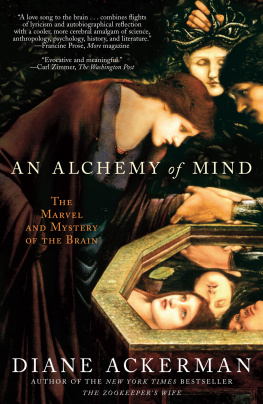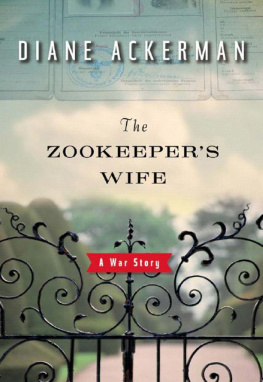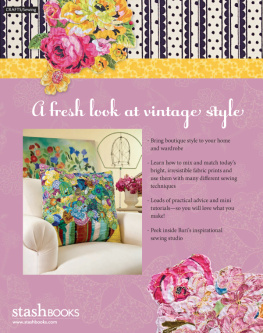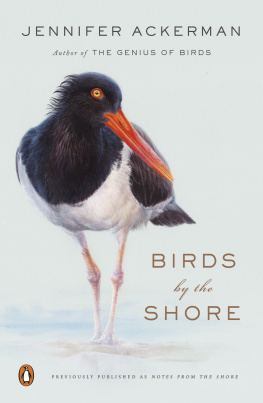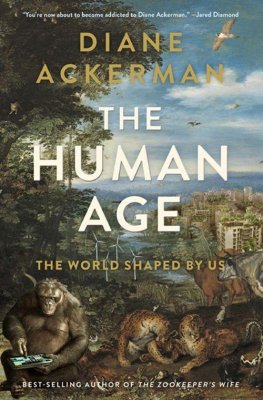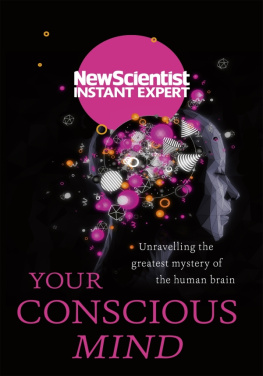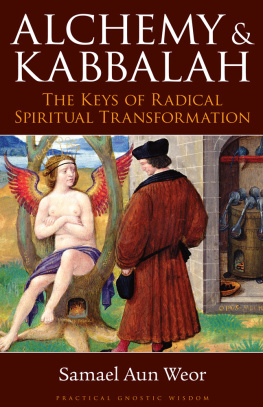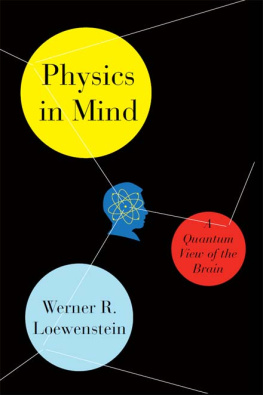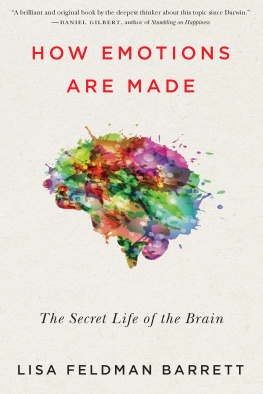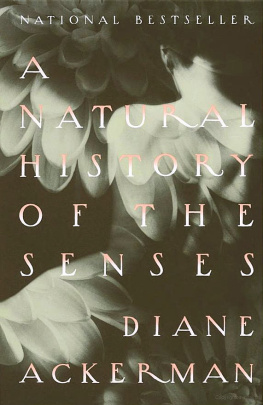Praise for An Alchemy of Mind
[Ackerman] is a grand, erudite synthesizer, positioning herself at the place where knowledge ends and reporting back to us in the language of lyric.... At a time when books about the brain, mind, and consciousness compete for readers attention, Ackerman has presented a helpful survey of the field leavened by yeasty writing and provocative insights.
Floyd Skloot, Newsday
A brilliant distillation of the mysterious intersection of brain and mind that borrows from psychology, neuroscience, philosophy, metaphysics, and the physical world, all delivered in miraculously readable prose.
Elle
Agile, involving, and uniquely far-ranging.... As always, Ackerman is positively scintillating, thanks to the intensity of her observations, the imaginativeness of her interpretations of both natural phenomena and science, the splendor of her distinctive prose, and her flair for making her discoveries personal, relevant, and resonant. Erudite and playful.
Booklist
In An Alchemy of Mind, brilliant stylist Diane Ackerman fuses science and personal experience as she explores thought, emotion, memory, language, gender differences, and creativity. You will probably never read a more lyrical description of how nerve cells communicate with one another than Ackermans.
The Arizona Republic
Ackerman folds some particularly interesting research into her narratives.... Her enthusiasm is contagious, and most readers will quickly be engaged by her fascination with the brain.... A playful, rewarding jaunt through the brains chemical realities and emotional intangibles.
Kirkus Reviews
Poet and naturalist Diane Ackerman ponders personality, gender, emotion, and language in this intriguing tour of the human brain. [She] leaves readers with nuanced understanding ofand gratitude forthat wrinkled wardrobe of selves that makes us all tick. Lyrically described highlights.
People
Incandescent prose and brainy insight.... Fascinating.
The Atlanta Journal-Constitution
Ackerman escorts the reader inside the skull.... It is a fascinating trip. [Shes] consistently brilliant and perceptive in her writing.
Alan Prince, Bookpage
Provocative.... [A] stimulus to the zen-like pursuit of thinking about thinking.
San Jose Mercury News
With elegance and attention to detail... Ackerman explores how our celebrated gray matter, an intricate tangle of billions of neurons, functions to make us at once unique and universal.
The Post and Courier (Charleston, SC)
Ackerman fans know what to expect: the meeting of science and sensuality, of nature and art, seen through the prism of personal experience and expression.... Her continuing references to the arts, animals, earlier humans, [and] cultural differences create contexts not found in other books on this subject.
San Francisco Chronicle
Ackerman fuses art and the mysterious science of the brain.
Elissa Schappell, Vanity Fair
By grounding the scientific information firmly in her own experience of discovery, Ackerman invites readers to share in her... uniquely personal perspective.
Publishers Weekly (starred review)
Ackermans style [is] genuinely gripping.
The Daily Californian
A beautiful book....[Ackerman] has taken the largely inaccessible and confusing scientific literature on the brain and made sense out of it. With clarity, spunk, and feeling, what is known about the brain becomes up-front and personal.
Dr. Michael S. Gazzaniga,
Director of the Center for Cognitive Neuroscience
at Dartmouth College and editor of Cognitive Neuroscience
Thank you for purchasing this Scribner eBook.
Join our mailing list and get updates on new releases, deals, bonus content and other great books from Scribner and Simon & Schuster.
C LICK H ERE T O S IGN U P
or visit us online to sign up at
eBookNews.SimonandSchuster.com
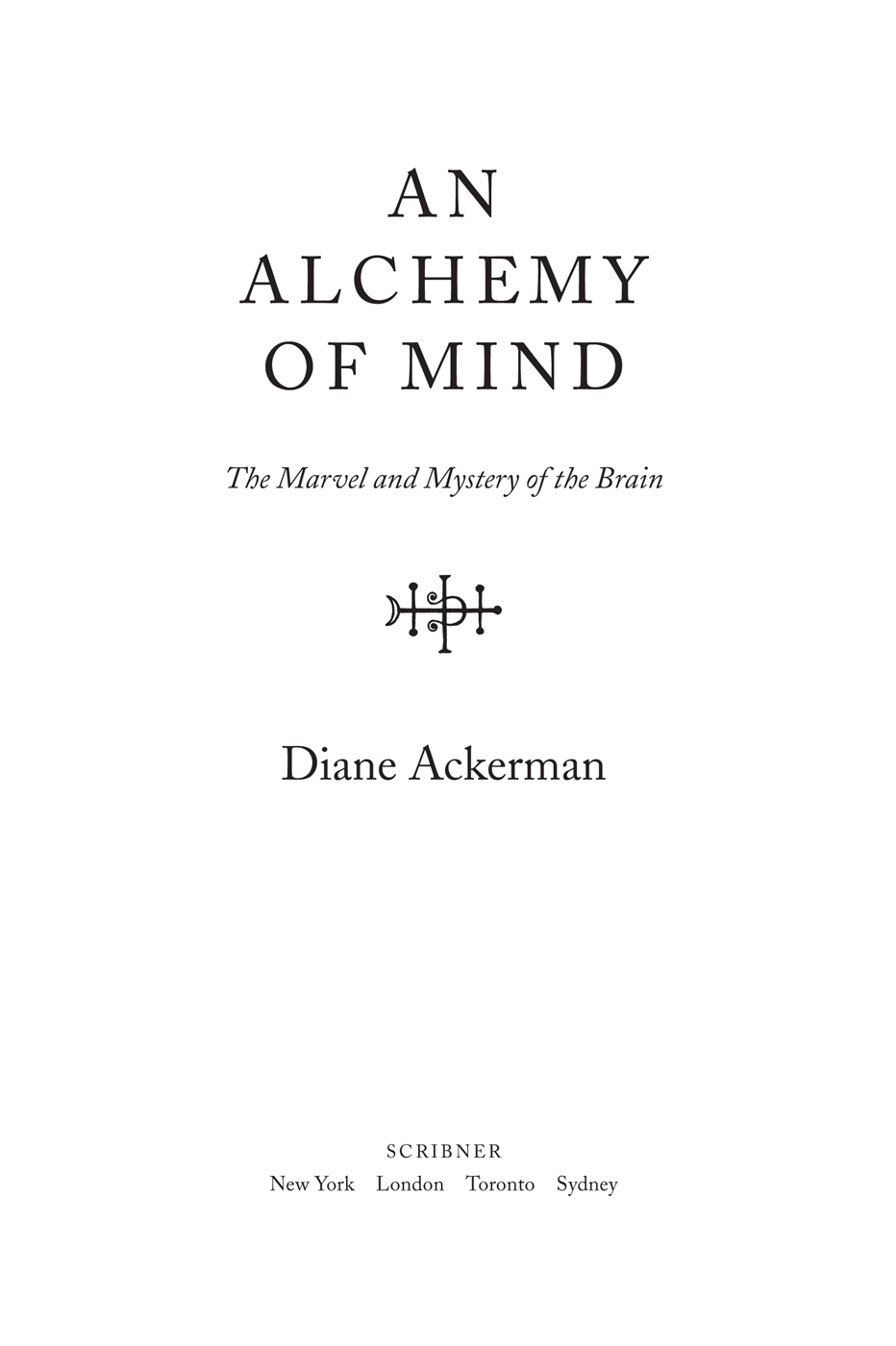
CONTENTS
Imagining the brain.
Evolution; the worlds tiniest reptile; our brain and other animals.
What happens in the right brain vs. the left brain; why were driven to tell stories.
Consciousness; some definitions and theories.
The unconscious; how it collaborates with the conscious mind.
Neurons, dendrites, axons; how all the parts speak to each other.
Synapses, the plasticity of the brain; how we influence brain development; medication and the brain.
How we unconsciously choose what to pay attention to; multitasking; absentmindedness.
How our brain quests for meaning in what it senses.
The spiritual brain.
What happened to it? Was it different?
The brains ability to imagine/see things that arent in view at the time.
The importance of memory to who we are; how memories are formed; how theyre influenced.
How memories are recalled; association of pain and memory; unconscious memory.
What happens when we learn; words on the tip of the tongue; Alzheimers and the aging brain; IQ; short-term vs. long-term memory; how memories affect the present.
The role of dreams in memory.
True and false memories; subliminally influencing thought and memory.
How theyre stored and recalled; connections between emotions and memory.
Proust; perfume; love.
How we think of ourself; the multiple facets of a self.
Body and mind; immune system and brain; brain damage and loss of self.
Nature vs. nurture; genetics and experience; development as babies.
Male and female brains; if they work differently; how theyre shaped; how traits get passed on.
Artistic minds, mathematical mindsinherited, cultivated; how they differ; synesthesia.
Anger, stress, adrenaline, how they affect and are relieved by the brain; our brain isnt made for the modern world; fear, painful thoughts.
Happiness as hereditary and achieved; the difference in the brain between natural and forced laughter; optimistic and pessimistic brains.
Language acquisition, use, and nonverbal thinking.
How words organize experience.
The origin of words; how we reveal ourselves through words; the brain finding relations among things.
How Shakespeares brain was different.
Evolution of life; how our brain came to be.
Are we the only conscious animals? Some theories about consciousness.
Animal minds.
Imaging the brain; brain research; celebration of the uniquely human brain.
For HB, with love
my mind is
a big hunk of irrevocable nothing which touch and
taste and smell and hearing and sight keep hitting and
chipping with sharp fatal tools
in an agony of sensual chisels i perform squirms of
chrome and execute strides of cobalt
nevertheless i
feel that i cleverly am being altered that i slightly am
becoming something a little different, in fact
myself
Hereupon helpless i utter lilac shrieks and scarlet
bellowings.
e. e. cummings, Portraits, VII

MIRACLE WATERS
(Evolution)
CHAPTER 1
The Enchanted Loom
... an enchanted loom where millions of flashing shuttles weave a dissolving pattern, always a meaningful pattern though never an abiding one; a shifting harmony of sub-patterns.
Sir Charles Sherrington,
Man on His Nature
I magine the brain, that shiny mound of being, that mouse-gray parliament of cells, that dream factory, that petit tyrant inside a ball of bone, that huddle of neurons calling all the plays, that little everywhere, that fickle pleasuredrome, that wrinkled wardrobe of selves stuffed into the skull like too many clothes into a gym bag. The neocortex has ridges, valleys, and folds because the brain kept remodeling itself though space was tight. We take for granted the ridiculous-sounding yet undeniable fact that each person carries around atop the body a complete universe in which trillions of sensations, thoughts, and desires stream. They mix privately, silently, while agitating on many levels, some of which were not aware of, thank heavens. If we needed to remember how to work the bellows of the lungs or the writhing python of digestion, wed be swamped by formed and forming memories, and thered be no time left for buying cute socks. My brain likes cute socks. But it also likes kisses. And asparagus. And watching boat-tailed grackles. And biking. And drinking Japanese green tea in a rose garden. Theres the nub of itthe brain is personalitys whereabouts. Its also a stern warden, and, at times, a self-tormentor. Its where catchy tunes snag, and cravings keep tugging. Shaped a little like a loaf of French country bread, our brain is a crowded chemistry lab, bustling with nonstop neural conversations. Its also an impersonal landscape where minute bolts of lightning prowl and strike. A hall of mirrors, it can contemplate existentialism, the delicate hooves of a goat, and its own birth and death in a matter of seconds. Its blunt as a skunk, and a real gossip hound, but also voluptuous, clever, playful, and forgiving.
Next page
